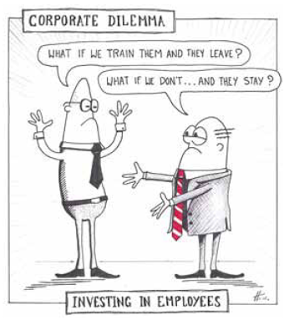30 June, 2016
ETNO ThinkDigital interview – Embracing the Digital Economy and the changes it brings
Christina Colclough, Head of EU Affairs, Uni Europa: “We need to look at the Digital Economy and everything it brings with it in terms of potential and challenges, of new business models, of changing customer behaviour, but also in terms of actually making our societies work on the social, economic and environmental levels.” #ThinkDigital
 The European Commission (EC) recently announced a new skills agenda. What do you think should be a priority?
The European Commission (EC) recently announced a new skills agenda. What do you think should be a priority?
I want to stress that it is a very welcomed agenda that is key in the context of the Digital Economy today. It shows the EC is actually addressing the needs of citizens, rather than just businesses, and is an occasion to prove that Europe is there for its people.
If I were to prioritise the items on this agenda, I would start with the absolutely vital Digital Skills and Jobs coalition. The Digital Economy is already growing of course, but we are about to witness an explosion and this is the occasion to get it right by starting to put policies in place now.
Secondly, the Skills Guarantee. We need to give those who have low skills, both the lust and the possibility to get skills. This may mean rethinking our education system.
A third point I would like to make, is that we need to improve the vocational education and training (VET) systems. In my opinion too many people have an academic degree for the simple reason that VET has somehow lost status. I think we need to modernise VET and find a more adaptable structure - perhaps a more modular form. Companies should commit to providing apprenticeships again so students, both vocational as well as academic, can get a taste of the real world.
The Digital Economy is progressing at a huge pace, bringing with it new requirements in terms of skills and technology. The more prepared people are for these “real world” needs, the better.
Finally, I think the EC needs to address the brain drain taking place both within Europe and globally. As it stands, a lot of Western and Northern European countries are draining the brains from the Eastern and Southern European countries while on an international level you could say there is a brain drain from Europe to Silicon Valley and in the future probably to other places in the world such as China and Hong Kong.
When the current EC took office it was a golden opportunity in history to really make a difference and to come up with an ambitious plan for the future of Europe in the global economy. The EC should have thought about areas in which Europe can compete compared to the rest of the world. What is it that Europe has that other regions cannot offer? Is it our very good educational systems? Our very good social benefit systems?
Perhaps they should have aimed to make Europe the green and sustainable, high-end technology centre of the world. By focusing on an area of expertise in this way, Europe can offer something to “the brains” that other regions cannot. We could have a brain influx.
What do you think the future of work and the workplace will look like? What will change – for better or worse?
Not everything is going to change of course.
The way I see it, we will probably have a core group of highly-skilled people with stable employment, and unfortunately a stable - if not growing group of low-skilled jobs.
I think we will see vast competition for lower skilled jobs and far more fluctuation in jobs as people will have more than one at a time and move towards loose employment contracts. With the growth in online platforms, the fixed work place will no longer be the norm as people become accustomed to working across many different platforms.
I imagine - and this is a personal view - that in the future we will talk more about tasks rather than jobs.
People who have a job will have a series of tasks attributed to them – a portfolio of tasks creates a job. Like different Lego building blocks that can be added and removed to suit the company’s needs. If a block or task becomes obsolete, due to technological or other forms of change, the time spent on that task could be replaced by a further training “block”, so the individual learns a new skill.
This “building block” system could also carry over into the educational system: Instead of students obtaining a 4 to 5 year Master degree in a particular field, say, sociology, they could build a wider range of skills by mixing say 3D printer coding with psychology and with business economics etc. Each of these skills or modules would be a certificate in itself.
As e-commerce, e-health, e-government, e-services and so on expand, I think we will witness an increased individualisation of work, and a growing polarisation of the workforce. Those working via online platforms will often be self-employed, and automation of work will hollow out many medium-skilled and paid jobs.
For the companies themselves, I think something interesting is going to happen. The technological developments mean that there will potentially be no limit to what is possible. Customers will expect more personalised and specialised solutions. This will force companies to work much closer together, as no one company can be expected to be able to solve all complex demands. As a result, the borders between companies will become more fluid as they will need to cooperate and co-develop solutions to be able to produce the services customers want.
Does this mean that skills will also be shared across companies? Will a top technician or engineer be interchangeable? Could we image a future in which we are on a rota scheme?
Almost half of all European adults lack sufficient digital skills, according to the European Commission. What needs to change?
There’s more than just people involved here. There is also a question of geographic location. We need to be very clear that the Digital Economy should not be just an urban thing. We need everybody, even in rural areas, to be on board.
Part of the Digital Economy is about everything moving into the cloud – the doctor, the government, all services that we usually have physical access to, such as the town hall. It will be about new products, new possibilities, new solutions and much, much more.
It is important to make sure that the digital economy is inclusive, so all citizens regardless of skills, age, and geographic location can utilise the potentials offered to them.
How can companies – big and small - best adapt and embrace the Digital Economy, ensuring that their employees keep up with the pace of digital innovation? What skills will be vital at work?
We need to look at the Digital Economy and everything it brings with it in terms of potential and challenges, of new business models, of changing customer behaviour, but also in terms of actually making our societies work on the social, economic and environmental levels.
I think there will be a very high-skilled core group of engineers, mathematicians, artificial intelligence experts. There will be a need for social intelligence experts too, to look into how we can actually make our societies work in this world of fluctuating boundaries between man and machine.
We mustn’t forget of course that for every product or service that a company sells online, there will be a need for people to pack, ship and deliver it.
How do we ensure that people’s skills keep up with the pace of digital innovation? Well this is a responsibility that we must lift together, making sure that it does not lie solely on the shoulders of big companies.
We need to ensure that there is a level playing field between big and small companies, online and offline companies, between foreign and non-foreign investors, between staff - the skills aspect - and also that we have a well-functioning public sector.
Training should become an essential part of working life.
There is this brilliant story that keeps circulating online:
A CFO says to the company CEO: “our education budget is very high next year. What happens if we put all this money into training our staff and they leave”. The CEO replies “what happens if we don’t and they stay?”
Education and training and the time it takes for these should be fully considered as part of work. It’s not a necessary evil, but rather a necessary good.
By Joanne Mazoyer for ETNO #ThinkDigital, Brussels, 30 June 2016
***
Christina Colclough, Head of EU Affairs, UNI Europa
Christina Colclough is Head of EU Affairs at UNI Europa, the European trade union federation which represents seven million workers in service sectors. She has held this position since August 2014. Before that, Colclough was General Secretary of the Nordic Financial Unions, based in Stockholm, from 2008 to 2013. Before joining UNI Europa in 2014, Colclough set up and ran her own a consultancy focusing on sustainable competitiveness and was Acting General Secretary of the Nordic Council of Trade Unions (NFS) in 2013. Colclough has a doctorate from the University of Copenhagen and worked as an account executive at Cohn & Wolfe, a global communications and public relations agency, from 2000 to 2001.


